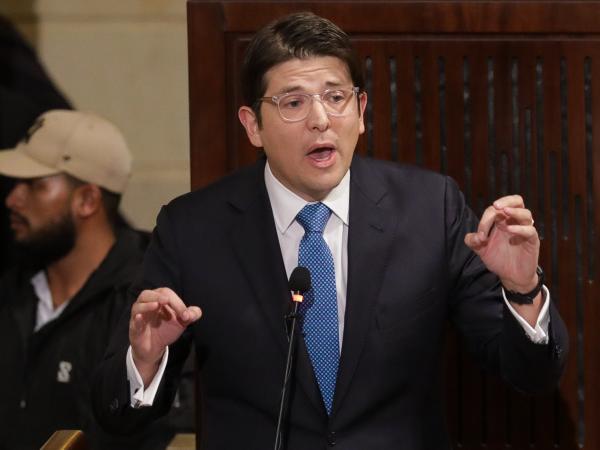The senators Miguel Uribe Turbay, Juan Pablo Gallo, Mauricio Gómez Amín and Antonio Zabaraín they filed a negative presentation to the National Government financing billwith which it seeks to fill the financial gap in the 2025 General Budget of the Nation.
“The most appropriate thing for the country is not to approve it. It would have a negative impact on investment and savings. Economic growth, job creation in the country and poverty reduction would also be significantly affected.“, is stated in the text of the presentation.
(You can read: Discomfort in Congress and fears in the industry generated by the financing law).
They mention that the carbon tax increase would have a significant impact on the cost of living: “The Government proposes raising this tax from 25,799 to 75,000 pesos per ton, which will generate substantial increases in fuel prices. Inputs for air, sea and land transportation will be increased by increasing the carbon tax per gallon of fuel between 273% and 294%“.
Congress of the Republic
According to the presentation, leave a surcharge on the mining-energy sector in the income tax, which could reach 49%would have negative effects on State income, royalties, direct and indirect jobs generated by the sector, the entry of foreign currency into the country and, ultimately, the cost of living.
(You can read: Alert in the oil sector due to financing law: ‘Energy crisis would worsen’).
Likewise, they ensure that the proposal to raise VAT from 5 to 19% for hybrid vehicles makes it difficult for consumers to access sustainable alternatives.
In the same way, that elimination of the Simple Tax Regime would cause an increase in business informality, given that companies would have to assume greater administrative and bureaucratic costs. “This impact would be especially detrimental to micro, small and medium-sized businesses, which would face greater difficulties within formality.“, they point out.

General Budget of the Nation.
(Further: Financing law: changes that must be prepared for if the project is approved).
Regarding the wealth tax, they indicate that it is “anti-technical” and “confiscatory”, as it discourages savings and the formalization and updating of properties.
PORTFOLIO
*With information from EL TIEMPO – ECONOMÍA

















